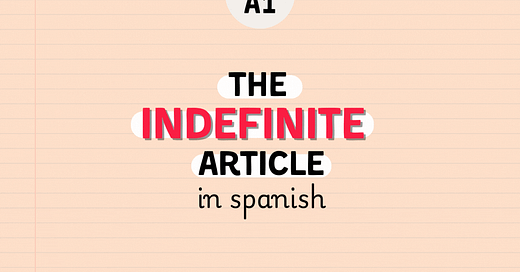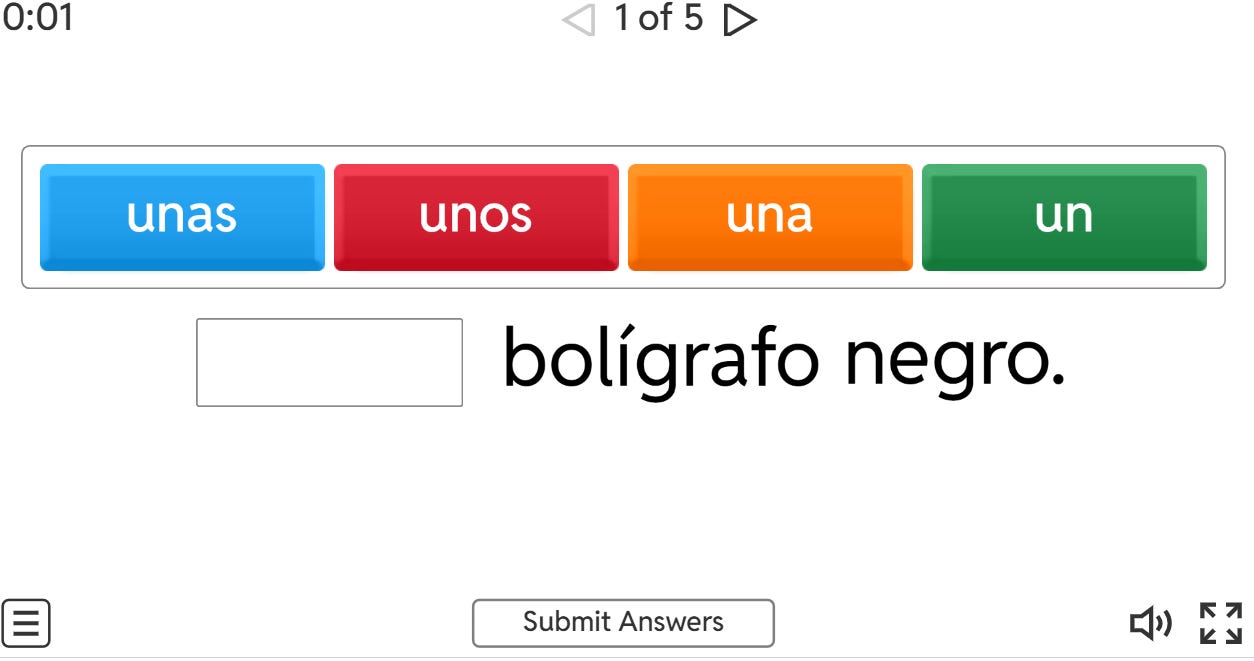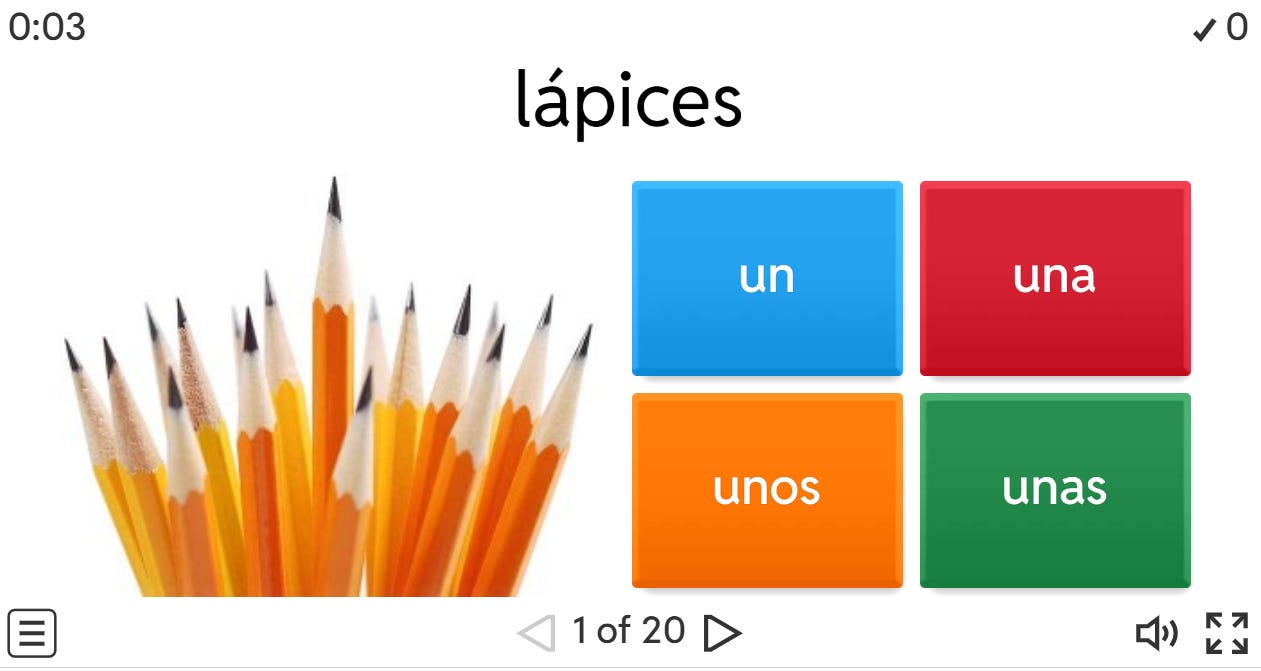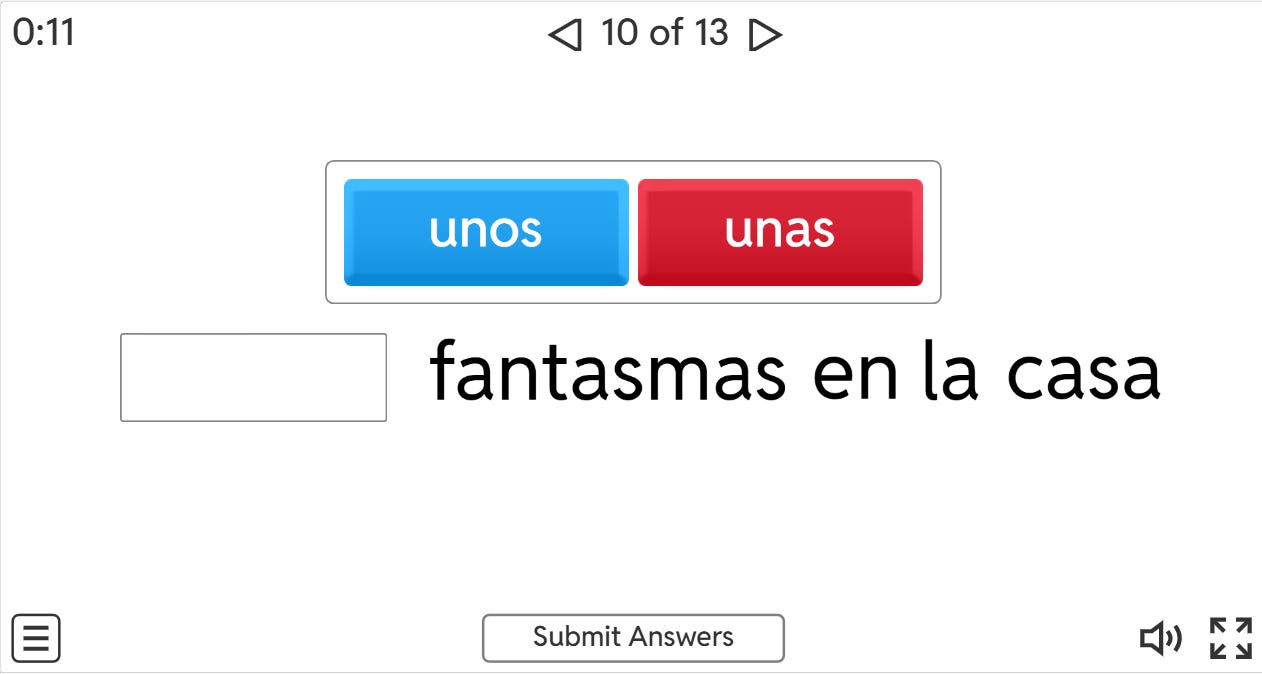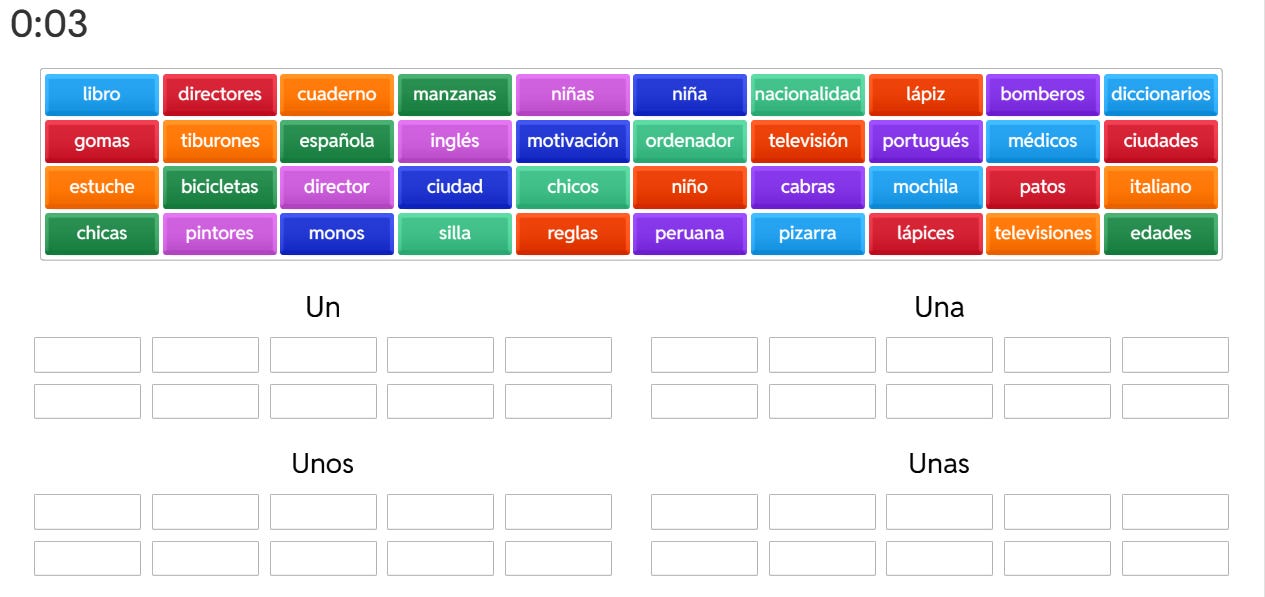📚 The Indefinite Article in Spanish
What is the Indefinite Article?
In Spanish, indefinite articles (artículos indefinidos) are used to talk about something unspecified or unknown. They are like "a" or "an" in English!
🔍 The Four Forms:
Spanish has four indefinite articles:
un (masculine, singular) - "a/an"
una (feminine, singular) - "a/an"
unos (masculine, plural) - "some"
unas (feminine, plural) - "some"
When to Use Indefinite Articles
1. Introducing Something New or Non-Specific
Vi un perro en la calle. (I saw a dog on the street.)
Necesito un bolígrafo. (I need a pen.)
2. Approximate Quantities (Unos/Unas = "Some")
Compré unos libros. (I bought some books.)
Hay unas manzanas en la mesa. (There are some apples on the table.)
3. Professions & Nationalities (After Ser)
Unlike definite articles, indefinite articles are used when stating professions/nationalities.
Es un médico. (He’s a doctor.)
Soy una estudiante. (I’m a student.)
Exception: If the profession has an adjective, omit the article.
Es médico. (He’s a doctor.) ✅
Es un buen médico. (He’s a good doctor.) ✅
When NOT to Use Indefinite Articles
1. After Hay (When Generalizing)
Hay libros en la mesa. (There are books on the table.)
Hay problemas. (There are problems.)
But use unos/unas for approximate quantities:
Hay unos libros en la mesa. (There are some books on the table.)
2. With Abstract or Uncountable Nouns
Necesito paciencia. (I need patience.) ❌ (Not ~~una paciencia~~)
Tiene miedo. (He has fear.) ❌ (Not ~~un miedo~~)
3. Before Another Determiner (Possessives, Numbers, etc.)
Tengo dos hermanos. (I have two brothers.) ❌ (Not ~~unos dos hermanos~~)
Es mi coche. (It’s my car.) ❌ (Not ~~un mi coche~~)
Special Cases & Exceptions
1. Feminine Nouns Starting with A-/Ha-
Like definite articles, una becomes un before stressed a-/ha- words for smoother pronunciation.
un águila (an eagle)
un hacha (an axe)
But adjectives keep the feminine form:
un águila blanca (a white eagle)
2. Omission in Certain Phrases
Tiene suerte. (He has luck.) ❌ (Not ~~una suerte~~)
Busco trabajo. (I’m looking for work.) ❌ (Not ~~un trabajo~~ in this context)
Choose the correct indefinite article
Click here to practice
Choose the correct indefinite article
Click here to practice
Choose the correct indefinite article
Click here to practice
Choose the correct indefinite article
Click here to practice
🚀 Want to Learn More?
📅 Book a 1-on-1 Spanish Lesson with me! 👉 Click here to schedule!


